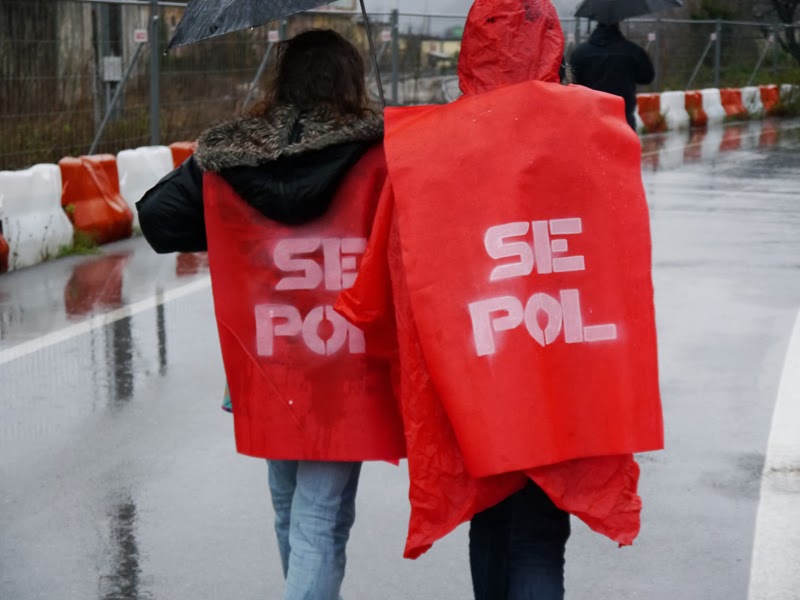
“SE POL” – WE CAN
OFF TO FREEDOM
Monday, 10 February 2014, was not only the “day of remembrance” of the rights of Trieste and its people.
It is the rights violated by the local Italian authorities, who simulate Italian sovereignty for their own gain, in the name of anachronistic nationalism and easy gains. They treat the City-port of Mitteleuropa as a spoil of war.
In 1954, the Governments of the US and of the UK sub-entrusted Trieste’s temporary civil administration to the Italian Government, which committed to rule the Free Territory and its international Free Port in accordance with their legal status.
Unfortunately, due to the Cold War and the dissolutive war of Yugoslavia, the envisioned local Government became a collaborationist élite that systematically denies Trieste’s rights and violates Italian and international law.
On Monday, 10 February, a new phase of the struggle to re-establish the rule of law in the Free Territory of Trieste has begun.
400 Triestines stood first line, under the rain, to defend the Northern Free Port: their stand is the last bulwark of legality, because the local Italian authorities are willing to destroy this precious, strategic asset in the name of concrete.
For 10 hours, 400 citizens formed a human chain to restore the walls of the Northern Free Port: the local authorities call it “old port” as if it were useless. It was the Commissioner of the Italian Government to open the walls, to let speculators and builders with connections to the Italian mafias get into it.
But our people, first in line the women of the Free Trieste Movement, won’t give up. We can’t let illegality win over the rule of law.
On 10 February, the “Ultimatum for the Free Port” expired. The Italian authorities won’t re-establish the rule of law, so it is up to the people addressing international authorities about this surreal state of absolute illegality.
This year, 100th anniversary of World War I, Trieste is on the way to get back the freedom it has lost in 1918.

IT ALL CHANGES
Translated from blog “Environment and Legality” by Roberto Giurastante
